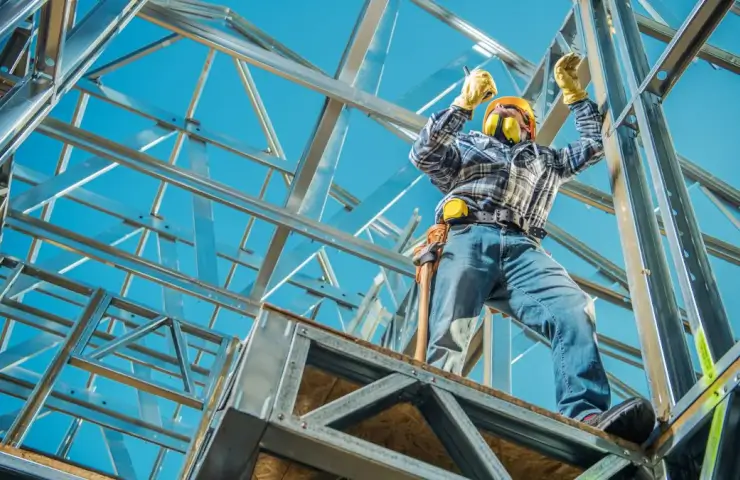Wood and steel were the two hardest hit materials, with prices rising sharply in March, according to statistics provided by the UK Department of Business, Energy and Industrial Strategy.
Metal structures, a significant part of which are produced in Ukraine and Russia, have risen in price by 19% compared to February. The material cost 54% more than in March 2021.
UK Steel's head of policy and external relations, Richard Warren, warned that prices would continue to rise, highlighting rising prices for raw materials such as coking coal and steel scrap as an obvious factor.
“Steelmakers have experienced significant increases in raw material prices this year, and this has naturally been reflected in steel market prices,” he said. “Prices for scrap steel and coking coal have risen by 40% and 35%, respectively, since January. Given the significant rise in prices for these materials in March and April, subsequent ONS data sets will show continued upward pressure on steel prices.”
Wood prices also rose during March, with imported sawnwood or planed wood prices up 2.5 percent after five months of steady declines. It was also 11% more expensive than in March 2021.
Imported plywood also rose in price by 2.5% and cost 28% more than in March 2021. At the same time, cement prices increased by 1.5% compared to February 2022 and remained 11.1% higher year on year.
Noble Francis, director of economics for the Construction Products Association of Great Britain, said it was "not surprising" to see material prices soar as the impact of the war in Ukraine began to take its toll on the sector.
“While construction demand remains strong, some specialized subcontractors under fixed price contracts signed up to 12 months ago will be hit hard, especially those working in construction sectors such as infrastructure, new commercial construction and cladding repairs that use a large number of energy-intensive products,” he said.
He added that the latest pressure comes on top of a "tough couple of years" for subcontractors, with labor issues, material costs, increases in professional liability insurance and IR35 kicking in.
The data comes days after the association sharply revised its growth forecast for the islands' construction sector, warning that the biggest impact on the sector would be felt later this year.




